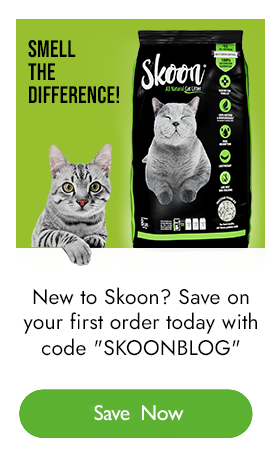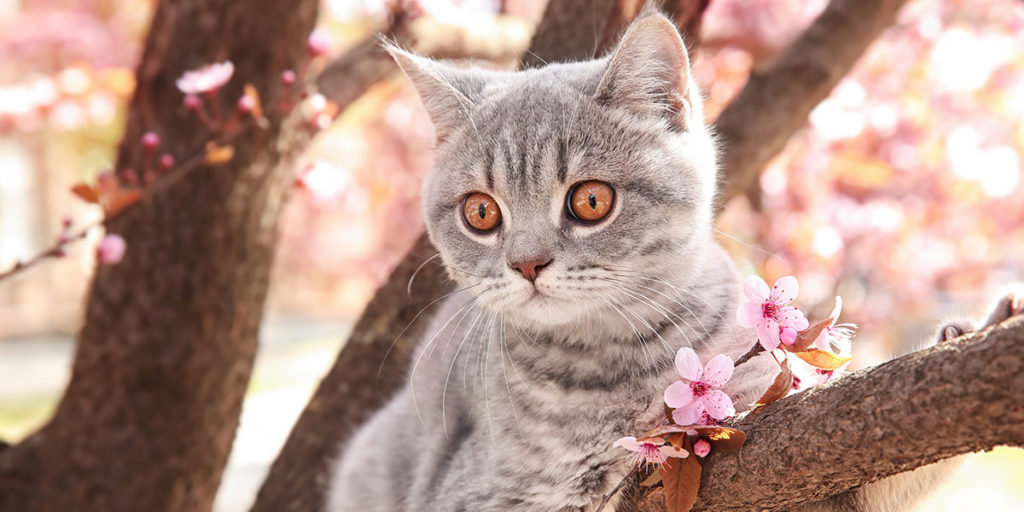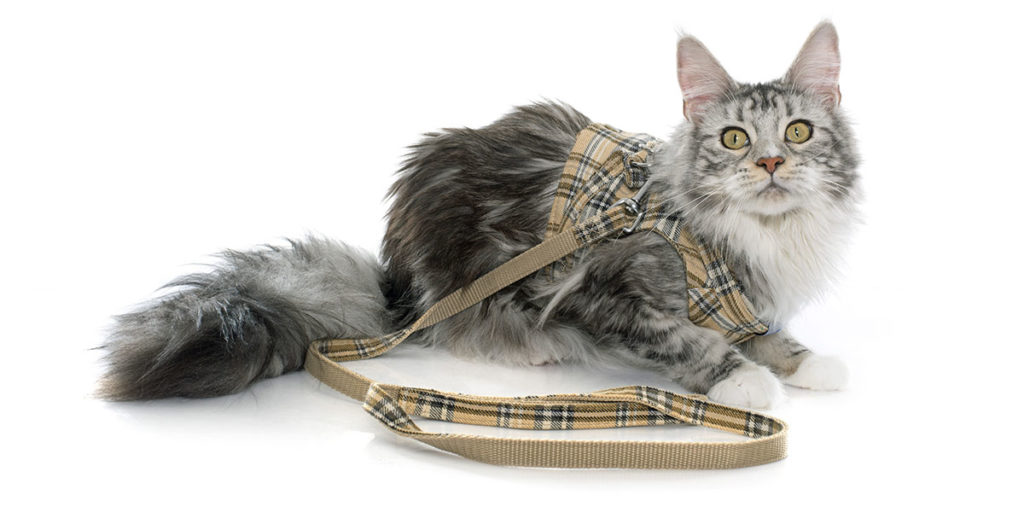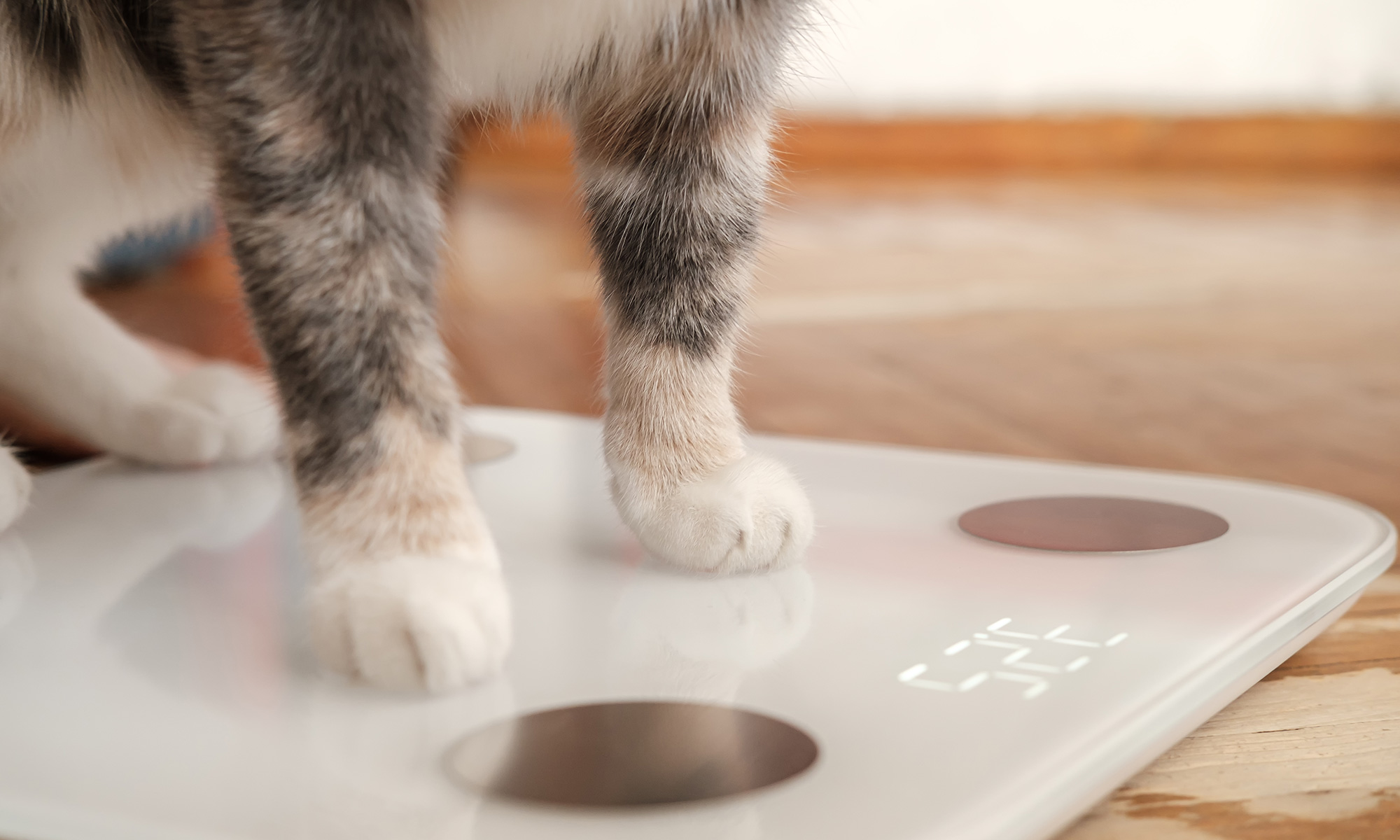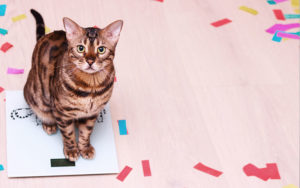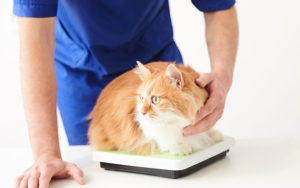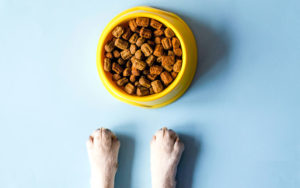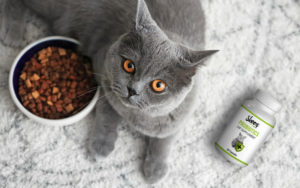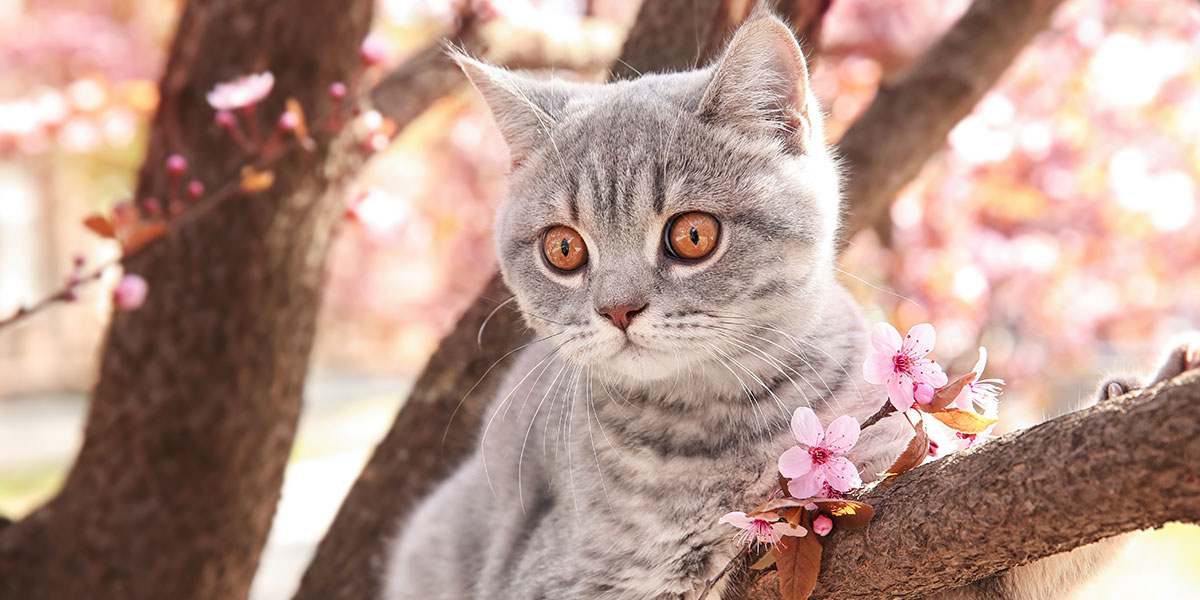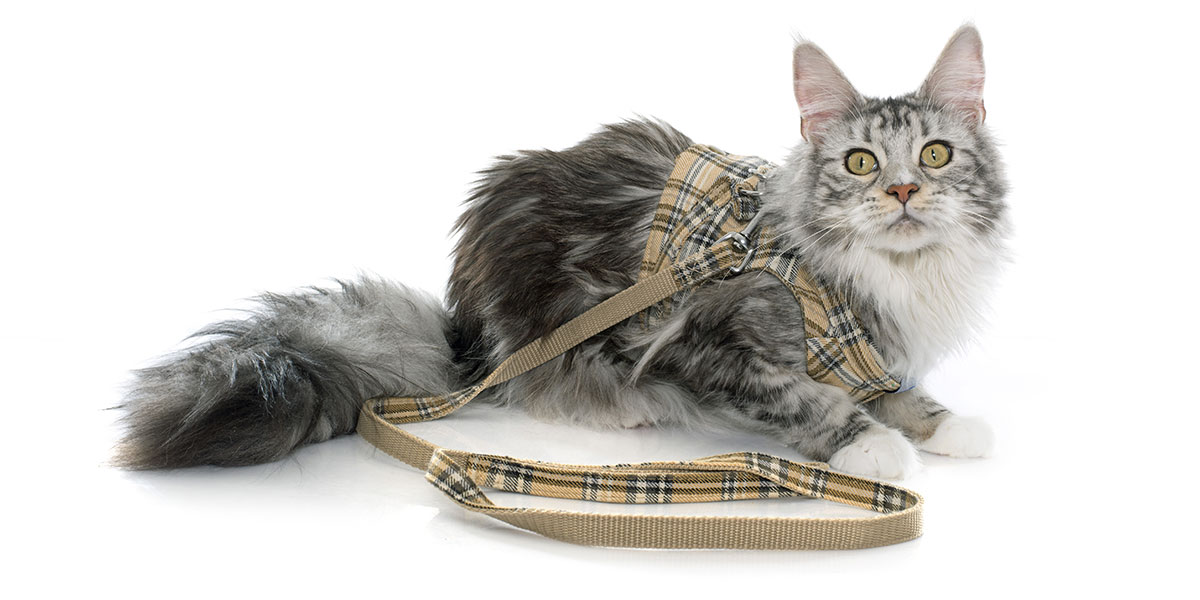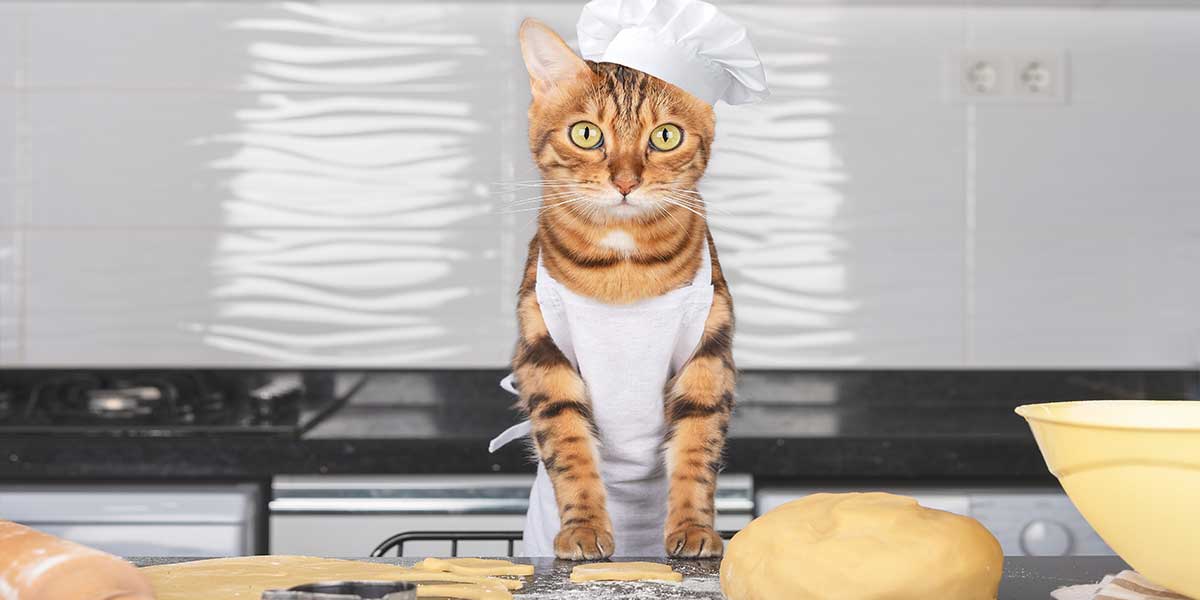How to Answer the Question: How Heavy Should My Cat Be?
As every fur parent knows, your cat is an expert at getting what they want. Whether it’s meowing incessantly in your direction until you play with them or staring you down until you give the man other treat, it’s almost impossible not to give them exactly what they want. Forget puppy dog eyes — kitten eyes are even harder to say “no” to.Sometimes, giving in to your cat is not the best option, especially when it comes to food. Sure, you may risk getting some cattitude in return, but it’s your job to ensure they are taken care of and avoid cat health problems.Here is our 101 guide to cat weight and health so you can answer the question, “How heavy should my cat be?”
Overweight Cat Health Problems
Cat health is a major priority when you have a kitty in your care. After all, no one wants their furbaby to deal with uncomfortable and challenging cat health problems. That’s why it’s so important to be able to answer the question “How heavy should my cat be?”Here are some of the most common cat health problems faced by overweight cats:
- Diabetes
- Arthritis
- Pancreatitis
- Joint Problems
- Skin Issues
- Liver Disease
How Heavy Should My Cat Be?
Most vet checkup appointments start with placing your cat on a scale, which is a great place to start when you want to ask, “How heavy should my cat be?” But if you keep forgetting to ask when you’re there or haven’t thought to ask about it yet, we have your back. Here are some basic guidelines for cat weight ranges to help give you an idea of where your kitty should be.
- The typical domestic cat: 8-10 pounds.
- Siamese Cats: 5-10 pounds
- Maine Coon Cats: 10-25 pounds
- Persian Cats: 7-12 pounds
How to Tell if Your Cat’s Weight is Ideal
If you’d like a way to tell if your cat is at a healthy weight that doesn’t just involve putting them on a scale or waiting for an appointment at the vet, there are options available. When you’re asking the question “How heavy should my cat be?” there are some simple at-home examinations you can do on your own to tell if your cat’s weight is healthy or not. Some indications that your cat’s weight is ideal are:
- You can feel your cat’s ribs when you brush your hand against their side.
- When you touch their back, you’re able to feel their shoulder bones.
- You can see their spine when you look at their back.
If you examine your cat and find that none of these statements are true, your cat is probably overweight. It’s also essential to consider if your cat could be underweight. If you’re looking at your cat and find that the ribs, shoulder bones and spine are very pronounced or seem too visible, there’s a chance that your cat doesn’t weigh enough.
Cat Diet Tips for a Healthy Weight
After you’ve asked yourself the question, “How heavy should my cat be?” you might be wondering what the next step is on the journey to promoting a healthy weight for your cat. If your cat doesn’t fall within the ideal weight range for its breed, it might be time to put Mr. Whiskers on a diet. An ideal weight can help your furry friend avoid various cat health problems down the line and simply feel better overall. Here are some helpful cat diet tips to consider:
-
Consult a Vet
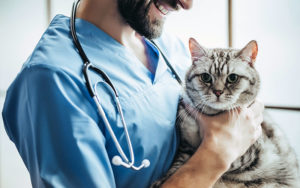
The most important thing to remember when dealing with the question of “How heavy should my cat be?” is that no weight-loss plan is complete without veterinary supervision. Your vet can give you tailored advice based on your cat’s breed, lifestyle and physical history. A vet can also create a weight goal and monitor weight-loss progress to ensure your cat stays healthy throughout the process.
-
Give Plenty of Water
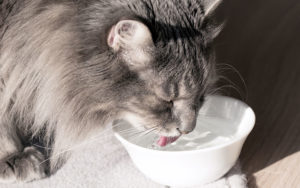
When it comes to ideal diets for humans and cats, one thing they have in common is that staying hydrated is just as important as eating healthy foods. Drinking more water is an excellent tip for your health and your cat’s health. Be sure to provide your cat with plenty of water throughout the day to support hydration.
-
Limit Treats
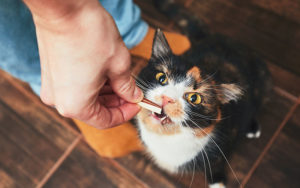
One of the first changes you think of is probably the number of treats you give your pet. While it can be difficult to resist a cat begging for extra treats or even for human scraps, it’s vital to limit treats and avoid any human food to help your cat achieve an ideal weight and prevent cat health problems. Instead of a food treat, try rewarding your cat with a new toy or some quality time spent together. Playtime is also a great way to get some healthy exercise in.
-
Try Canned Food
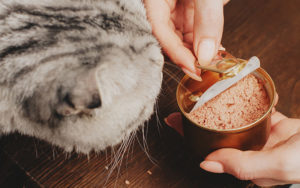
Canned food has several advantages over dry food for cats. Canned food tends to be a better choice because it is packed with protein and has fewer unhealthy carbs than dry food. It’s also easier to control how much canned food a cat eats and when it eats. Instead of leaving out a bowl of dry food all the time, feed your cat canned food at specific intervals during the day. That way, your cat won’t have all day to munch on a bowl of tempting dry food.
-
Switch Up Food Access
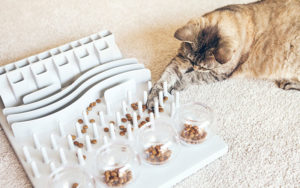
Another important consideration is how your cat accesses their food. Do you have one designated feeding area in your home? If the answer is yes, consider placing your cat’s food bowl in a different location every week, day or even every mealtime. This way, your cat will have to move around the house to find the food and will get some exercise in while they do it. Another way to switch up how your cat eats their food is to place their meal in a “food puzzle.” These puzzles challenge your cat to work to get their food out of the device. Food puzzles make sure cats don’t eat too quickly and help promote cat health. Finally, if you share your home with both feline and canine furry friends, make sure your cat can’t access the dog’s food bowl. Sneaking dog food means the cat will be eating more than they should and that they’re eating food that wasn’t designed for them — neither of which are healthy.
Boost Digestion with Probiotics from Skoon
A healthy cat is a happy cat. And, of course, nothing makes a fur parent happier than knowing their fur baby is comfortable and can avoid common cat health problems in the future. After you’ve figured out the answer to “How heavy should my cat be?” and decided whether or not your cat needs to go on a diet, there’s still more that you can do to help prevent cat health problems. To further support your cat’s health and ideal weight, give their digestion a boost with Skoon Probiotics. This cat supplement is designed to help your cat maintain regularity and keep unhealthy gut bacteria from growing out of hand. Skoon Probiotics are a great choice to support digestive health and your cat’s immune system. When you’re planning out the best diet for your cat’s overall health, don’t forget to add Skoon Probiotics to the list. Give Skoon Probiotics a try today to help plan the perfect healthy diet for your cat!

